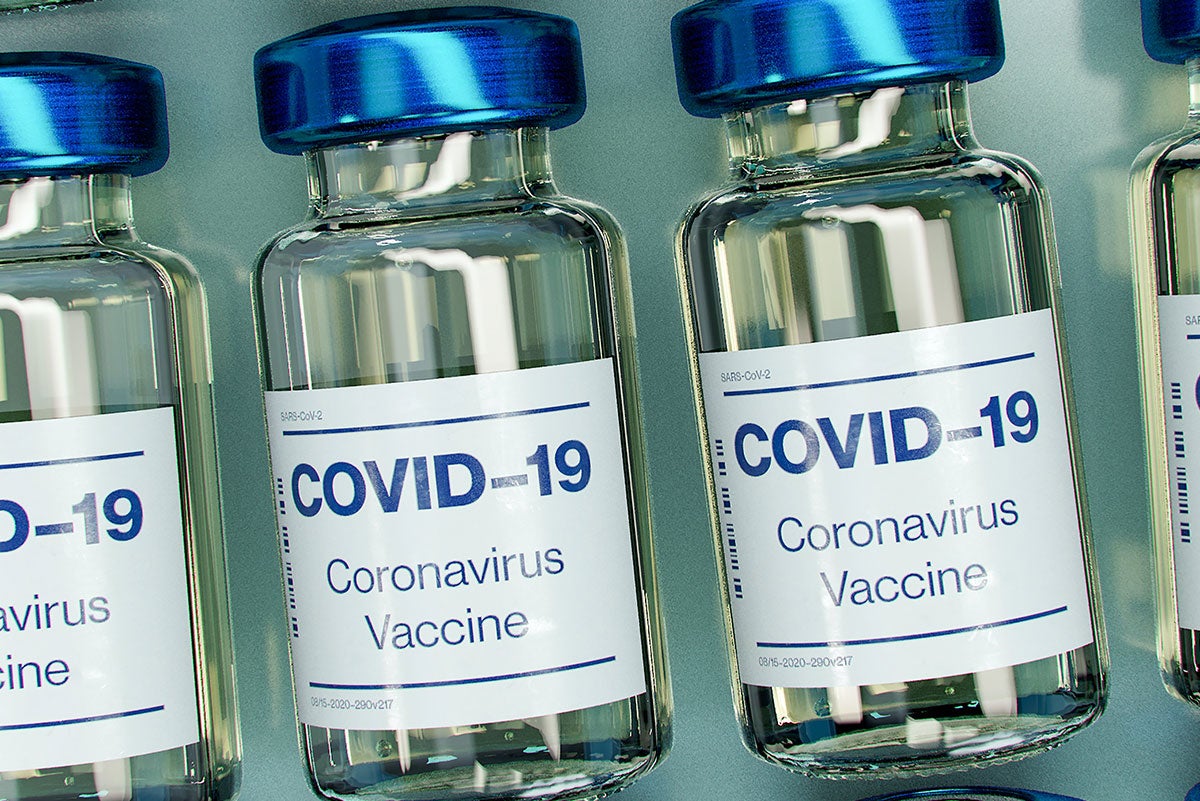Straight Talk About 3rd Doses and Booster Shots
September 21, 2021
By: St. Mary's Health Care System
Categories: COVID-19
The news is so confusing! What do I need to know?
Guidance about COVID 3rd doses and booster shots is still emerging and that means the situation is confusing. In this blog, we’ll try to sort out what is happening.
What is the difference between a third dose and a booster shot?
A third dose is necessary for some people who are immunocompromised – that is, they have a weakened immune system. The third dose helps to achieve maximum immunity and the best possible protection against COVID-19. Most people need two shots (doses) to complete the vaccine series, but people who are immunocompromised need three shots (doses) to complete the series.
A booster shot is for those with normal immune systems. It recharges your body’s reaction to COVID, which may weaken over time, especially as new variants arise.
What is approved right now?
The FDA has approved third doses of mRNA vaccine (Pfizer or Moderna) for certain people who are immunocompromised, that is, they have a weakened immune system.
The FDA has given emergency use authorization for a Pfizer booster 6 months after the second dose for certain populations (see "Who might be eligible for a booster shot?" below). However, the CDC must still approve this action before healthcare providers can begin giving booster shots.
The FDA has expanded the Emergency Use Authorization (EUA) for the Pfizer vaccine to be given at least 6 months after the initial completion of the primary vaccine series for:
- Individuals 65 years and older
- Individuals 18 through 64 years at high risk of severe COVID-19, and
- Individuals 18 through 64 whose frequent institutional or occupational exposure to COVID-19 puts them at risk of serious complications of COVID-19, including severe COVID-19.
The CDC Advisory Committee on Immunization Practices (ACIP) is now considering this information from the FDA. We will share more information after the CDC provides their recommendation and additional eligibility details.
Who is Immunocompromised?
People who have moderate to severe immunosuppression qualify to receive an additional dose of the COVID-19 vaccine. The CDC currently recommends an additional dose for those who have:
- Been receiving active cancer treatment for tumors or cancers of the blood
- Received an organ transplant and are taking medicine to suppress the immune system
- Received a stem cell transplant within the last 2 years or are taking medicine to suppress the immune system
- Moderate or severe primary immunodeficiency (such as DiGeorge syndrome, Wiskott-Aldrich syndrome)
- Advanced or untreated HIV infection
- Active treatment with high-dose corticosteroids or other drugs that may suppress your immune response
Why are additional doses being considered?
People who are immunocompromised may need a third dose to reach maximum protection. Their weakened immune system may not produce enough response from the initial two-shot series.
People with normal immune systems may need a booster shot because studies are showing the body’s immune response can weaken over time and because new variants are arising.
Will the third dose or booster need to be the same type of vaccine as the first two doses?
Yes. The FDA and CDC have not approved mixing vaccines from different manufacturers.
If I’m immunocompromised, when can I get my additional dose?
The CDC recommends getting your additional dose at least 28 days after the second shot in your two-shot series.
Where can I get my third dose?
The best option is through the provider who gave you your first two doses. If that is not an option, go to https://www.vaccines.gov/ to find a provider near you. Make sure they offer the type of vaccine you need and to bring your vaccine card to your appointment.
If I had the Johnson & Johnson vaccine, should I get an additional dose?
CDC and FDA are still studying this question. The Johnson & Johnson vaccine was authorized nearly two months after the Pfizer and Moderna vaccines, so there is not as much data about it yet.
Some other questions that might be on your mind
Can my children be vaccinated?
The Pfizer vaccine is fully FDA approved for anyone 16 years and older. The Pfizer vaccine also has emergency use authorization (EUA) for teens ages 12-15. The Moderna and Johnson & Johnson vaccines are authorized for use in those 18 and over. Note that Pfizer/BioNTech have announced they plan to ask the FDA for emergency use approval of their vaccine in children ages 5-11 later this year.
I’ve heard about “breakthrough” infections. Is it worth getting vaccinated at all?
Yes. While no vaccine is perfect, the existing COVID vaccines are among the best ever made. They continue to provide strong protection against serious illness and death. The vast majority of those hospitalized with COVID during the ongoing surge are unvaccinated.
I’ve already had COVID. Should I get vaccinated?
Yes. It appears that prior infection with earlier versions of COVID provides very little protection against new variants. Data show that the vaccines have a stronger and longer-lasting effect.
Will the booster shot have the same side effects as the original shots?
Maybe. Side effects such as a sore arm, low fever, cough, and fatigue that last for 24-48 hours are caused by your immune system revving up. Allergic reactions are rare but possible; if you had a reaction to the vaccine before, talk to your doctor about your individual risks and benefits of getting a booster shot.
If I get my COVID booster, will I need a flu shot this fall?
Yes. COVID and the flu are caused by different viruses, so you need separate vaccinations.
What if I have other questions?
The best source of information that is tailored to you is your primary care physician. If you need a primary care physician, visit our Find A Doctor feature.
